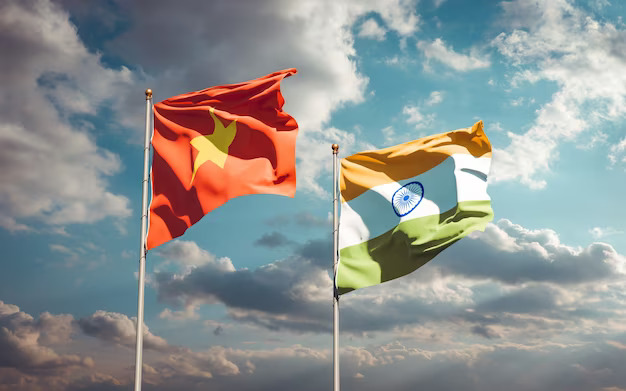China, once heralded as the top emerging Asian market, is witnessing a noticeable shift in global capital flows due to economic and geopolitical risks.
Investors, in their quest for safer avenues, are pivoting towards other emerging Asian markets like India and Vietnam.
This remarkable shift is primarily due to escalating economic and geopolitical uncertainties surrounding China, and investors’ inclination towards alternatives with fewer risks.
According to Goldman Sachs, for the first time since 2017, the foreign investment inflows into Asian emerging-market stocks, excluding China, have topped net buying of mainland China stocks via the Stock Connect program.

The totals stood at US$39 billion and US$32 billion, respectively.
This trend underscores the record pace at which investment funds targeting non-China economies are cropping up.
Goldman’s Asia-Pacific equity strategist, Sunil Koul, noted, “Foreign buying has picked up strongly in the region outside of China” over the past four months.
This shift of investment interest coincides with China’s ongoing struggle to recover from the pandemic-induced economic slump.
With high youth unemployment and a sluggish real estate sector, China’s economic growth has been slower than anticipated.
Beyond the economic sphere, geopolitical tensions also pose significant concerns.
Investors, particularly from America and Europe, are apprehensive about the potential fallout from a Taiwan conflict.
This fear, reminiscent of Russia’s fallout after invading Ukraine, stems from the possibility of assets getting frozen or becoming challenging to liquidate.
Persistent concerns about China’s human rights record add another layer of complexity.
Institutional investors, who typically benchmark against the MSCI Emerging Markets Index, increasingly prefer markets outside China.
The recent surge in demand for emerging-market funds that exclude China reflects a pattern reminiscent of the “ex-Japan” theme that took root post-Japan’s economic bubble burst three decades ago.
Data from Morningstar Direct highlights that a record-high eight exchange-traded funds and investment trusts excluding China were established in 2022, up from merely three in 2021.
Funds such as BlackRock’s iShares MSCI Emerging Market ex-China ETF have substantially increased net assets over the past couple of years.
Investors are increasingly eyeing India as a promising alternative as the MSCI Emerging Markets Index, excluding China, outperforms the main index.
Amid an expanding middle class and the anticipation of significant multinationals relocating their manufacturing bases from China to India, the Indian market shows strong potential.
Meanwhile, Vietnam, identified as a “frontier market” by MSCI, is also drawing investor attention due to its political stability and low labor costs.
The current scenario underscores a significant shift in the emerging Asian market landscape.
China faces stiff competition from India and Vietnam as investors continue to seek alternatives amid escalating economic and geopolitical uncertainties.

